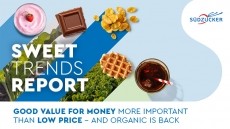Swiss consider Emmental production quotas in price boost effort

Switzerland-based makers of the world-famous, heavily-exported holey cheese are currently battling for survival as a continuing oversupply of the product keeps prices low and cuts margins for manufacturers, the dairy farmers that supply them and others in the supply chain.
Domestic and international competition has also increased significantly as cheaper, mass-produced Emmentaler made in the European Union (EU) and the US floods the market.
Emmentaler Switzerland, which represents the interests of milk producers, manufacturers and distributors in the Emmentaler sector, voted in favour of the proposed production quotas earlier this year.
The decision has now been passed on to the Swiss government.
Weak Euro and oversupply
Emmentaler Switzerland marketing and communications manager Christoph Stadelmann told DairyReporter.com that if approved, the quotas should increase finished product prices and relieve the pressure on the country’s remaining traditional Emmentaler cheese making plants.
The organisation has warned, however, that to be successful the quotas must be implemented across the whole industry.
“Two things [have forced down the price of Emmentaler],” said Stadelmann. “The weakness of the Euro and the oversupply of Emmentaler.”
This, according to Stadelmann, has led to the closure of a number of traditional Emmentaler production plants in Switzerland.
Around 30 of the remaining 180 traditional Emmentaler plants in Switzerland have been forced to close in recent years, said Stadelmann, adding that milk suppliers have not been immune to the struggles.
“Of course [they are struggling], they earn less for the milk used for Emmentaler AOC,” he said.
Long term solution
A verdict is expected from the Swiss government in October following a consultation process.
If approved, Stadelmann believes the production quotas could make a real difference in raising the price paid for Emmentaler cheese.
“Yes [the quotas will make a difference], in the mid to long term,” he said.
“We want to do what every branded product is doing: to adapt the offer to the demand,” Stadelmann added.




























